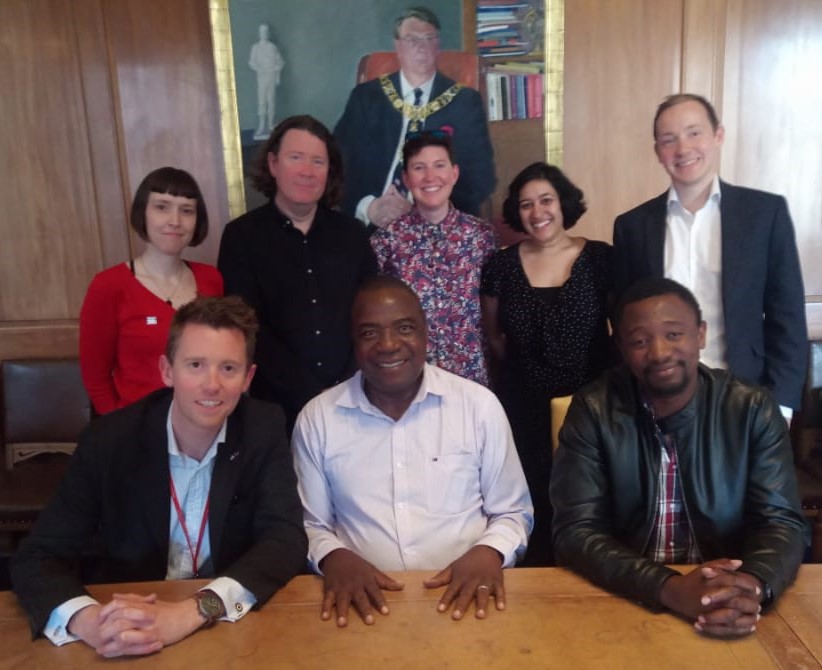Tackling social disadvantage and inequality is at the core of Heriot-Watt’s GCRF strategy. The inclusion of workers with disabilities is a challenge in Scotland as well as in Malawi. A networking grant in 2018-19 established partnerships of researchers and trade unionists in both countries who are committed to tackling this challenge.
The work has been supported by both Heriot Watt University and St Andrews University, enabling visits between Scotland and Malawi. The key partner is the Malawi Congress of Trades Unions (MCTU), which represents 24 trade unions with about 200 thousand members.
It is estimated that 3-11% of the population in Malawi are disabled, but there is little agreement as to what constitutes disability, and how that relates to paid work. The connections between health, work and poverty are well-known and trade unions across the world have been successful in in agitating for improved working standards, resulting in improved worker health and well-being.
During a visit to Scotland, Limbani Kachali and Denis Kalekeni of MCTU met with members of the Scottish Trade Union Congress and with the Scotland Malawi Partnership, as well as spending time with researchers at Heriot Watt and St Andrews.
Partners did not begin the project with shared notions of what it means to be disabled. This is an ongoing learning experience as research partners learn how to communicate adequately and share information.
Jen Remnant, HWU Researcher
When the Scottish researchers returned the visit to Malawi, they shared training resources to support the development of trade unions in Malawi, which have been widely disseminated. They also began to gather data through interviews with workers with disabilities and government officials responsible for improving inclusion. They met with researchers at the Malawi University of Science and Technology, to strengthen links with the local research community.
MCTU has now developed a research policy, as a result of this collaboration, and the network has established clear ideas for future collaborative research to address the needs of Malawian workers. A book chapter has been prepared for a publication expected late in 2021 ‘Disability in government-controlled media and legislation in Malawi 2012-2019’
GCRF institutional support has enabled the foundation of a strong network of researchers and practitioners who are now able to develop and deliver more ambitious research to underpin real change. Research impact can take a long time to be felt, but engaging early in the real needs of the beneficiaries can ensure lasting change in the long run.
- Kate Sang
- Jennifer Remnant
- James Richards
- Lena Waanggren

